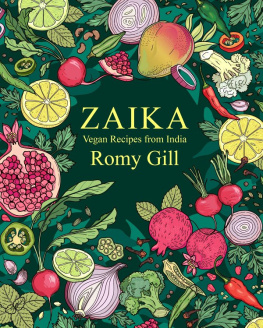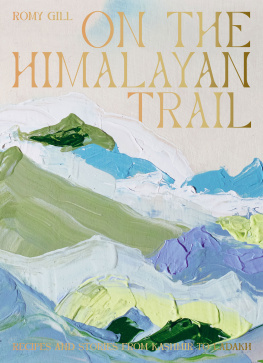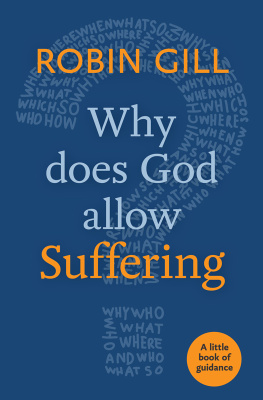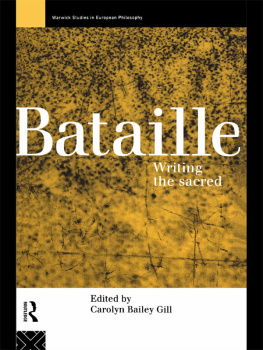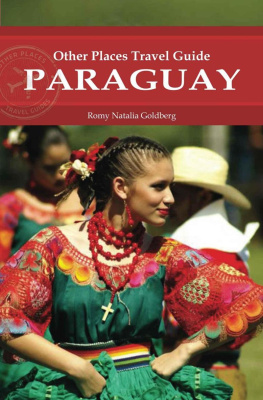Romy Gill - Zaika
Here you can read online Romy Gill - Zaika full text of the book (entire story) in english for free. Download pdf and epub, get meaning, cover and reviews about this ebook. publisher: Orion, genre: Home and family. Description of the work, (preface) as well as reviews are available. Best literature library LitArk.com created for fans of good reading and offers a wide selection of genres:
Romance novel
Science fiction
Adventure
Detective
Science
History
Home and family
Prose
Art
Politics
Computer
Non-fiction
Religion
Business
Children
Humor
Choose a favorite category and find really read worthwhile books. Enjoy immersion in the world of imagination, feel the emotions of the characters or learn something new for yourself, make an fascinating discovery.
- Book:Zaika
- Author:
- Publisher:Orion
- Genre:
- Rating:5 / 5
- Favourites:Add to favourites
- Your mark:
- 100
- 1
- 2
- 3
- 4
- 5
Zaika: summary, description and annotation
We offer to read an annotation, description, summary or preface (depends on what the author of the book "Zaika" wrote himself). If you haven't found the necessary information about the book — write in the comments, we will try to find it.
Zaika — read online for free the complete book (whole text) full work
Below is the text of the book, divided by pages. System saving the place of the last page read, allows you to conveniently read the book "Zaika" online for free, without having to search again every time where you left off. Put a bookmark, and you can go to the page where you finished reading at any time.
Font size:
Interval:
Bookmark:
In memory of my beautiful mother who taught me the importance of sharing knowledge about ones food with others, and cooking from the heart.



It started with samosas. The plumpest, crispest, most fragrant pastry parcels I have ever had. It was at a hipster pop-up in a smart part of London. The capitals food world had turned out to be wowed by dish after perfect dish. And we were. Perhaps the smoky aubergine stood out: accomplished, pitch perfect, all you hope for. But she had me with the samosa. They tasted of home, you see. Warm and generous, like Romy Gill, the woman, cook, and now author, who made them.
In some ways, Romys journey to this book also started with samosas. Before Romys Kitchen her celebrated Michelin-mentioned restaurant in Thornbury, near Bristol there was Romys kitchen in her house, where she made samosas and spiky, spicy chutneys and sauces, and sold them through food festivals, or shared them in cooking classes and by teaching kids at local schools. There were advertisements in the yellow pages and local papers to spread the word about her cooking. Of course, Romys loving husband and daughters, her family in India and her neighbours always knew she could cook. But more importantly, so did she.
It wasnt enough for Romy to be the best mother, wife, daughter she could be. She is one of the most driven women Ive ever met and its this same drive that has made her run marathons, ride a bicycle across India for Action against Hunger, made Michelin notice, and that, in 2016, made her an MBE.
I have watched her, with her close team, in her tiny restaurant kitchen outside Bristol. I have seen the care she takes as she cooks; the confidence with which she scoops spice to go into the grated potatoes for the stuffed parathas her mother made her as a child, or the samosas I begged for so I could eat them on my train journey home (they are still the best I will eat until the next time I visit).
Romy Gill is not just one of the UKs finest Indian cooks, or even one of the best female chefs. She is simply one of our most gifted cooks and teachers. I cant wait to try these recipes I hope it is the start of a series of books. Read Zaika , savour the stories but please also cook with it often, keep it in the kitchen and let the pages get splashed with golden spices.
I grew up with my Punjabi family in a small town in West Bengal, India. Childhood home pleasures were basic; there were none of the gadgets and emerging mod-cons of the day I was 12 when our first black-and-white television set arrived in the house, and we were absolutely transfixed by it! For us, there were more simple pleasures, such as playing cricket and badminton and the get-togethers with family and friends at the many festivals, weddings and religious celebrations. These events created such fervour and joy for us all; they were occasions for dancing, singing and, of course, food.
From a young age Id sit and watch my parents cook; my father would grind the spices and prepare the mixes for my mother, which she would cleverly use to liven up a variety of everyday foods. I remember my mother feeding me as a small child on our veranda, introducing me to a wealth of flavours, textures and techniques, all of which have stayed with me ever since. She was my first instructor in life and her influences are strong in the way that I cook today.
My parents didnt speak English but they made sure we went to English medium school (a type of school in India where students are taught the same education syllabus as children in the UK) and they provided good wholesome food for us. All our food was plant-based, as we rarely ate meat, only ever on special occasions. Indian food is strongly influenced by religion, culture, rituals, the caste system, wealth and poverty; poor people who cant afford to drink clean water cannot afford to eat meat or drink milk. Few rich people eat meat every day, either, and even if they do, vegetables and lentils play a huge part in these dishes.
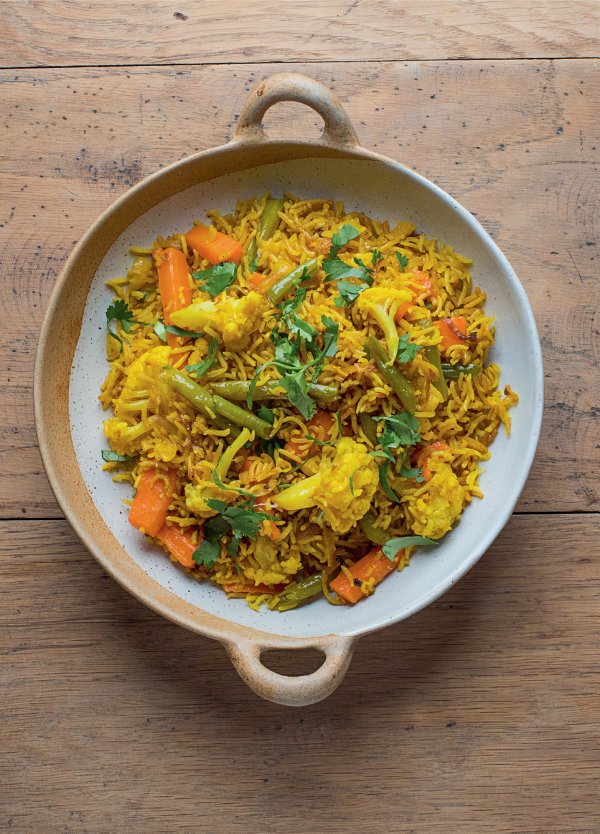
My parents would use eclectic styles from all over India to create delicious family meals. Indian food is not Indian food, its regional, and every household cooks particular dishes differently they might use the same spices but their techniques and methods vary. My mum used to say its all in the hand. I am so grateful to Dad that he worked in a steel works far away from the village he grew up in, because if he had stayed at home I would never have learned to respect the flavours I know so well today. Where I grew up, people came from different states and cooked and shared the food they grew up eating, so I was used to eating a wide variety of different flavours.
When I first moved to England, in 1993, many of the Indian ingredients that Id become accustomed to using were almost impossible to find, unless you had a specialist Indian shop nearby. I was not able to drive then and I was bit scared to take the bus, as if I got lost, what would happen? (Mobile phones were not a necessity then!) Although it might seem a bit silly to many people, coming from a country that was so different in so many ways was challenging, as well as exciting, at first. I had never used an oven before, so you can understand that roasting vegetables or baking a cake was a first for me. Eating a strawberry, or as a matter of fact eating any berries from the UK, was another first. And I absolutely disliked the taste of avocado (making it into a chutney helped!), which was just one of many vegetables and herbs, with which I began to experiment, that I had never seen before. It was so exciting to combine the two cultures and create something fresh and new, always with the added ingredients of a pinch of nostalgia and spice.
Its this style of experimentation that has formed the base of my cooking ever since. I wanted to open my own restaurant from the moment I moved to the UK, and to cook for people the food that I grew up eating. In 2013 I finally opened the doors to my restaurant, having waited three and half years for planning permission to give me change of use and then nine months for the builders to finish work. Once I had the space, then came the challenge of finding money to furnish the restaurant, hire staff and buy ingredients (along with many more necessary costs); four banks refused to give me a loan, but then BBC national news interviewed me for a feature about small businesses and the very next day I got a loan. I sold all my jewellery and put all our savings towards the restaurant: Romys Kitchen in Bristol, UK.
Getting the restaurant open was a long struggle, but it was worth all the effort. The food that I cook there is very much based on the flavours I grew up with, and now the restaurant is established I can also travel around sharing my recipes,to bringing these out. My recipes in the Labours of Love chapter therefore might take a bit more effort and planning ahead than a midweek recipe, but its worth it I promise!
Many of the recipes in Zaika were cooked for me in my homeland by my mother and her friends. Food is woven through my childhood, and it features strongly in all my most cherished memories. As a child in the school holidays in India, my siblings and I would head off on long train journeys with my mum, kept happy with her beautifully packed picnics, featuring street food from each state, which wed eat when the train stopped at each station. My mums passing has made me realise how much I miss her and how much I crave the flavours of those train journeys. I now try to recreate those sights and smells of childhood in the UK; food certainly helped me when I missed my family and the friends that I grew up with, and it gave me hope of making new friends in a new country, too, by sharing it as I had at home. And although I am no longer living in my homeland, I have never forgotten my roots. The vegan dishes in this book are the flavours of my kitchen simple, accessible recipes that anyone can cook and it is, I hope, a treasure trove that I intend to be passed through each household, and each generation.
Next pageFont size:
Interval:
Bookmark:
Similar books «Zaika»
Look at similar books to Zaika. We have selected literature similar in name and meaning in the hope of providing readers with more options to find new, interesting, not yet read works.
Discussion, reviews of the book Zaika and just readers' own opinions. Leave your comments, write what you think about the work, its meaning or the main characters. Specify what exactly you liked and what you didn't like, and why you think so.

